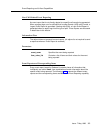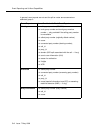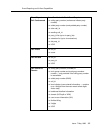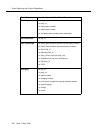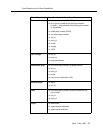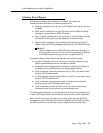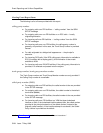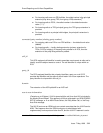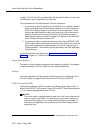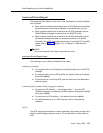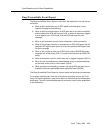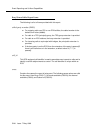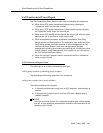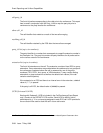
Event Reporting and U-Abort Capabilities
Issue 7 May 1998
3-11
■ For incoming calls over non-PRI facilities, the called number is the principal
extension [may be a group (TEG, hunt group, VDN) extension]
3
■ For incoming calls to PCOL, the called number is the default extension
value (*****).
■ For incoming calls to a TEG (principal) group, the TEG group extension is
provided.
■ For incoming calls to a principal with bridges, the principal’s extension is
provided.
connected party number (alerting party number)
■ For outgoing calls over PRI or non-PRI facilities — the default trunk value
(#####).
■ For incoming calls — locally alerting extension (primary extension for
TEGs, PCOLs, bridging). If the party being alerted is on ECS, then the
extension of the party being alerted is passed.
call_id
This ECS-assigned call identifier is used to associate event reports to calls and to
identify a call the adjunct wants to control. The call identifier is unique within an
ECS.
party_id
The ECS-assigned identifier that uniquely identifies a party on a call. ECS
provides the identifier and the adjunct should retain it for future operations. The
party identifier is unique within the call_id.
domain
The extension of the ACD split/skill for an ACD call.
user to user information
(Contains up to 32 bytes.) If UUI is stored with the call, then that UUI is included in
the Alerting Event Report. This applies to UUI that originated in an ISDN PRI/BRI
SETUP message; or in an ASAI Route Select, 3rd Party Make Call, or 3rd Party
Auto-Dial message.
The UUI IE sent over an ISDN trunk can contain more data than the UUI IE sent to
ASAI. This happens when the ISDN trunk group is administered with
supplementary service protocol other than B, and the UUI IE Treatment is set to
3. If the ECS is administered to modify the DNIS digits, then the modified DNIS string is passed.



